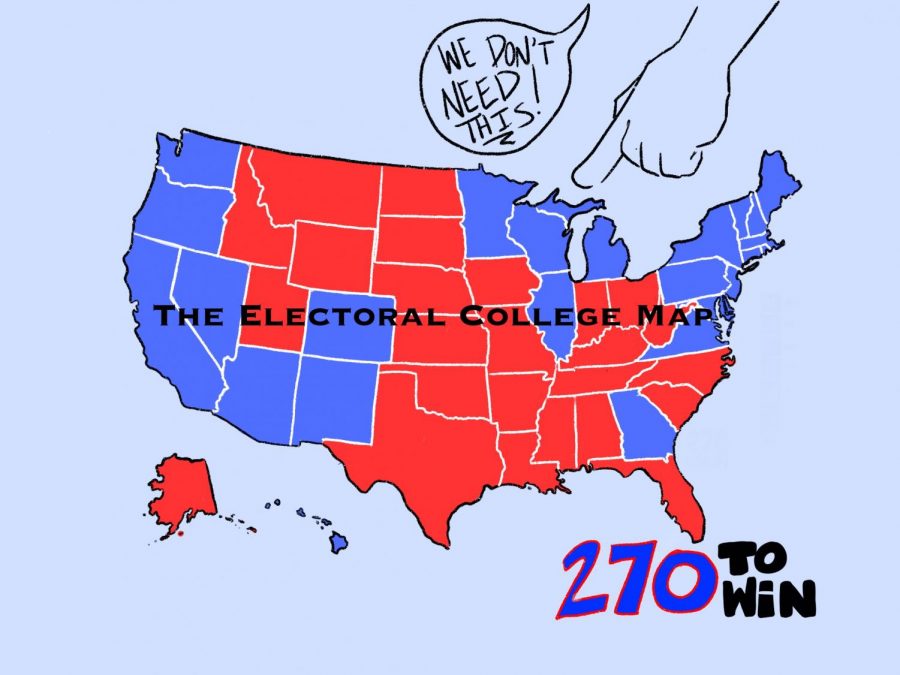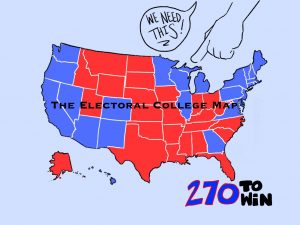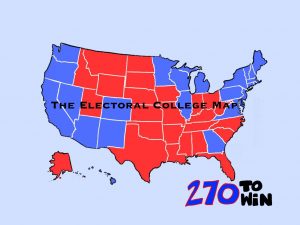Why we should not have an electoral college
Photo by Sophia Novelo
Many students believe that we do not need the Electoral College in a presidential election.
December 8, 2020
Ever since its creation in the sixteenth century, the electoral college has been a point of contention in American politics. Ask anyone their opinion on the matter, and you’re bound to hear different results. In the 2020 presidential election, this age old debate on the necessity of this institution is as present as ever, but in today’s society, there is truly no longer a need for such an this outdated system.
“The function of the electoral college is outdated[,] as it was initially intended to balance out the voting rationale in an American era where not all citizens were effectively politically educated. However, the present day has public education where political literacy is much more accessible, and so standard popular voting holds much stronger integrity where the electoral college no longer needs to keep in balance,” Zander Vilaysane (12) said.
A quick summary: the electoral college is a body of electors for each state (whose numbers proportionally represent that state’s population) who cast their votes in presidential elections. The first candidate to win 270 electoral college votes wins the election, regardless of the popular vote results, generally. This system was created because the founding fathers were apprehensive about giving the voting power to the uneducated majority, in fear that they wouldn’t know how to make smart political decisions. To placate those fears, the electoral college was established.
“The way the electoral college delegates votes to the states inherently undermines democracy in the nation. A state is given 2 votes for statehood, and the rest are determined off population. This creates an issue however[,] because low populous states will have greater electoral power due to those two given votes…We’re all familiar with the quote ‘We hold these truths to be self-evident, that all men are created equal,’ so why is it [that] we don’t have equal voting?” Matthew Rosen (12) said.
The electoral college system gives immense power to swing states, making their votes more significant than states cemented in their party affiliations like California. Still, it can be argued by some that this imbalance can be considered positive, ensuring representation for states that wouldn’t have the population to do so.
“I think the electoral college should still be used in presidential elections to promote an equal representation of opinions across all political parties and states. The purpose of the electoral college is to divide the single presidential race into 50 smaller ones within the states. Without this system, states like Idaho would be drowned out by higher populous states like California, thus creating an unfair race,” Harrison Blacklock (12) said.
There is still the argument that this historic institution has its merits. It protects less populated states from having their votes rendered useless. The argument believesis that the large states aren’t the only ones who should have a say in the presidency.
“The reason so many people like the electoral college is because they’ve been tricked into thinking that their vote will be suppressed otherwise…Getting rid of it, if/when that happens, would actually open up more avenues for the American people to elect a president that the majority of Americans, like how a democracy is supposed to work,” Jay Costales (12) said.
Being a large part of every U.S election since the beginning, the electoral college system doesn’t look like it’s going anywhere anytime soon. Nonetheless, the modern day election process truly has no need for the electoral college. It is a both outdated and unbalanced system that compromises the democratic process of the United States.







